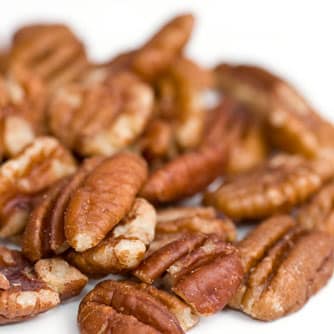Vitamin E, a natural antioxidant that helps to protect against cell damage, has been found to provide therapeutic benefit in a variety of diseases including heart disease and Alzheimer’s. Pecans are among the top fifteen dietary sources of antioxidants including Vitamin E. Thomas B. Shea, from the University of Massachusetts/Lowell (Massachusetts, USA), and colleagues completed a series of laboratory studies on three groups of mice specifically bred to demonstrate severe decline in motor neuron function that are commonly used in studies of amyotropic lateral sclerosis (ALS), also known as Lou Gehrig’s Disease, a type of motor neuron degenerative disease. Each of the three animal groups was fed a control diet or one of two diets containing differing amounts of pecans ground into their food, and the researchers employed standard testing methods to determine how well the mice scored relative to motor neuron functions, both before and after they were provided with one of the three diets. The team found that those mice that were provided a diet supplemented with pecans displayed a significant delay in decline in motor function, as compared to mice receiving no pecans. Mice eating the diet with the most pecans fared best, while both pecan groups fared significantly better than those whose diets contained no pecans. The team comments that: “These findings suggest regular consumption of pecans may provide significant nutritive and antioxidant benefits for your body.”
Pecans May Help Protect Neurological Function
“Pecans provide neurological protection,” University of Massachusetts-Lowell Press Release, 9 June 2010.
RELATED ARTICLES




